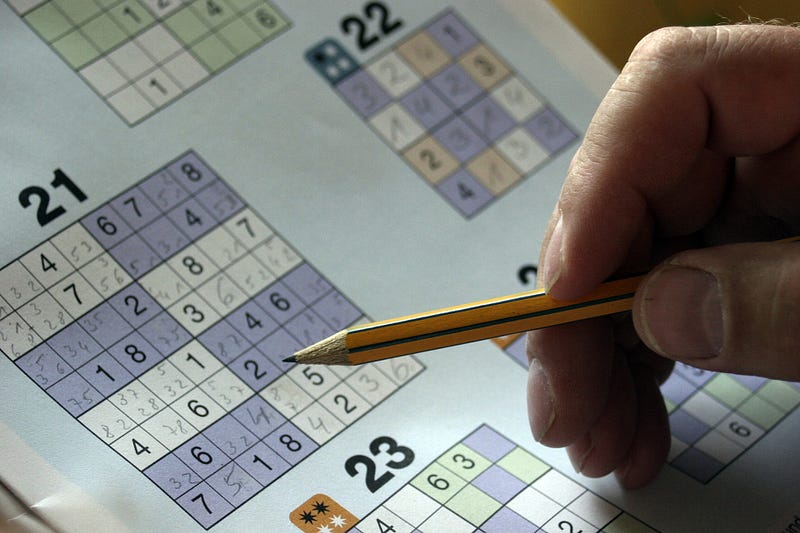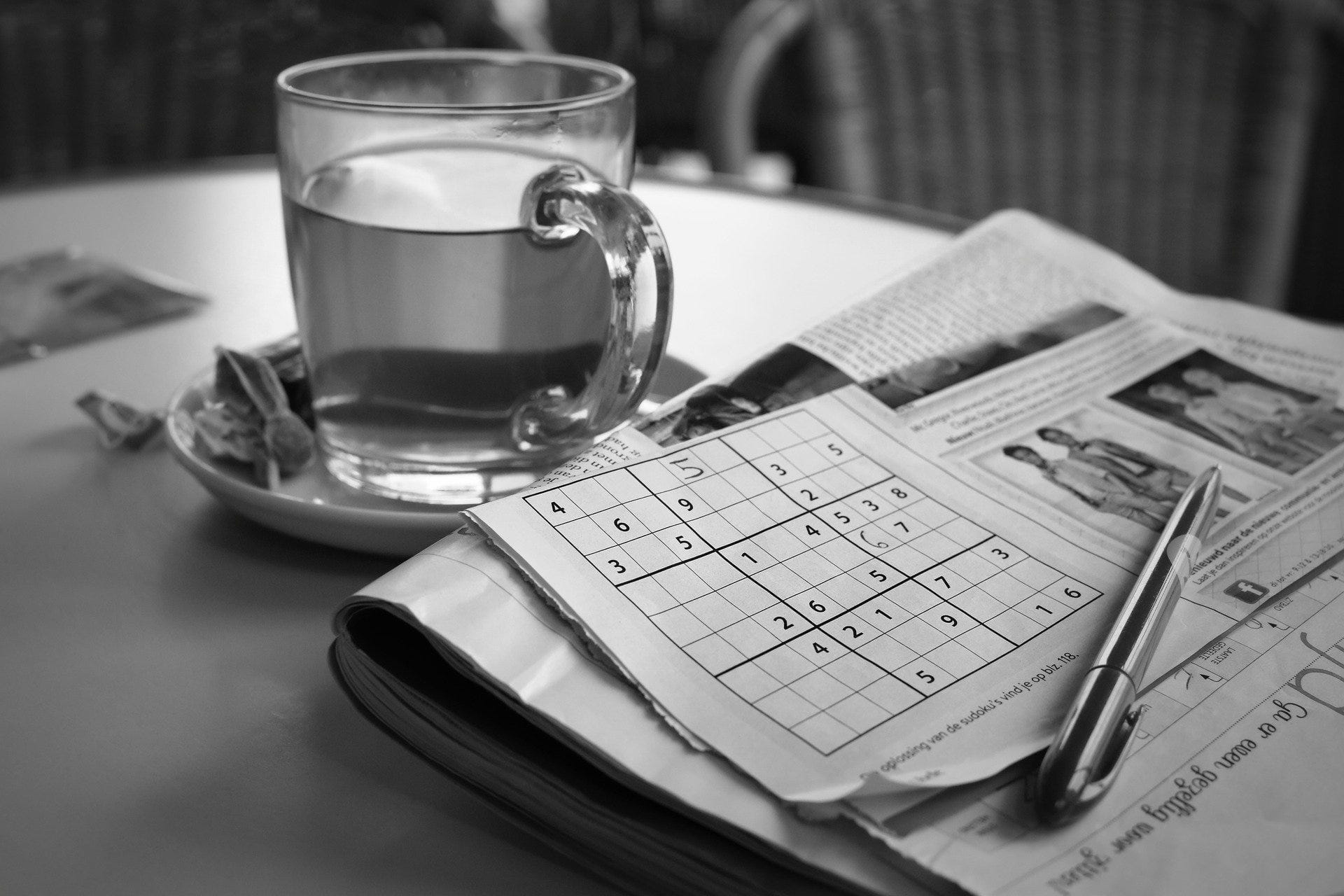From the time I was introduced to the Sudoku table in a math class at elementary school, I found it intriguing. How it’s possible to generate so many different puzzles, all satisfying the condition of having unique digits in all rows, columns, and small 3x3 squares?
Number of Cells
81 cells, representing an average life expectancy of 81 years.
As if we are filling a cell each year we are getting older, having more ideas of where we are heading overall. But just like a real puzzle, we might end up making a mistake, writing a 7 where it is supposed to be a 3, and continuing the puzzle with that information for 1–2 more rounds (years). But at some point we will realize that something is wrong, this formation can’t be true and we need to find the mistake. Most of the time it will be obvious but it may be trickier to find it sometimes.
And what do we do in this case? We simply take the eraser, changing that (unlucky) 7 to the 3, where it has always belonged (at least in this puzzle, in this life).
And it’s quite common to make mistakes if it’s the first time playing a very difficult puzzle. The only way we get better and better is by starting from simpler puzzles and gradually increasing the levels, and still, we might make mistakes.
But in real life, we don’t have that opportunity to start from an easy life and make it harder as we go. And that’s why making mistakes is part of life.
We might spend some years in a college and degree we don’t like, in work we are not valued or in relationships, we are not satisfied, and in many more situations, we feel we made a mistake.
Looking from the lens of the puzzle, but not having a chance to practice before playing the real game, these mistakes are the way we train ourselves. We discover rules and principles in the game, so later in the game (or life) we can use them so won’t make the same mistake again, if we were conscious enough to learn it in the first place.

Number of Unique Puzzles
The total number of unique puzzles: ~5 billion, a close number to earth’s population.
These are cool and close to actual numbers but the actual resemblance lies deep inside each puzzle combination.
Number of Clues
The numbers that are pre-filled in the grid are called “clues” and it’s been proven recently that the numbers are clues should be at least 17 for the puzzle to have a unique solution.
And to what we can connect this in real life? How about adolescence and starting to get a clue about the real world, who we are, and what we would like to do with our lives?
We can also count each of the privileges an individual has to a clue in the Sudoku of life. For example, being born into a rich family, or even simpler things we overlook like having access to clean water, clean hygiene, free access to the internet, the list goes on and on.
Why make this connection even though the number of these clues is much bigger than 80 clues we can have? (if we have 81, then the puzzle is solved, they can’t be called clues). This is not an issue as there isn’t a one-to-one relationship between a privilege and a clue. There might be a set of features, for example, related to the health of an individual that is counted as 1 clue.
Why this is important?
Because the difficulty of the puzzle is directly linked to the number and distribution of these clues. And that is linked to the different perceived levels of difficulty for each individual's life journey.
The Solving Process: Life in Progress
Just like in Sudoku, we often start life with incomplete information. We have a few "clues" – maybe our talents, our family background, or our early experiences. But the rest? We have to figure it out as we go.
Sometimes we get stuck. We stare at the same problem, hoping for inspiration. In Sudoku, it might be that tricky 3x3 square. In life? Maybe it's a job we can't seem to land or a relationship that's not working out.
The key is to zoom out. Look at the whole board. Try a different approach.
And mistakes? They're part of the game. In Sudoku, a wrong number can mess up the whole grid. Life can feel the same way sometimes. But here's the thing – we learn from those mistakes. We get better at spotting patterns, at making decisions. Just make sure to know which numbers should be written with pencil and which ones to be written with a pen (reversible vs irreversible decisions).

The Bigger Picture
As we fill in more cells, things start to make sense. What seemed random before now forms a pattern. That's life, isn't it? Experiences that seemed disconnected suddenly clicked into place.
And just like every Sudoku puzzle has a unique solution, every life has its own unique path. There's no one-size-fits-all approach. We each have to figure out our own solution, one cell at a time.
Embracing the Puzzle
So next time life feels like an unsolvable puzzle, remember this: You're the player. You've got the pencil (and the eraser). Take a deep breath. Look at the bigger picture. Trust yourself to find the solution.
After all, like in Sudoku, the answer is already there. It's just waiting for you to discover it.
And isn't that the beauty of it all? The challenge, the process, the gradual revelation. That's what makes both Sudoku and life worth playing.



